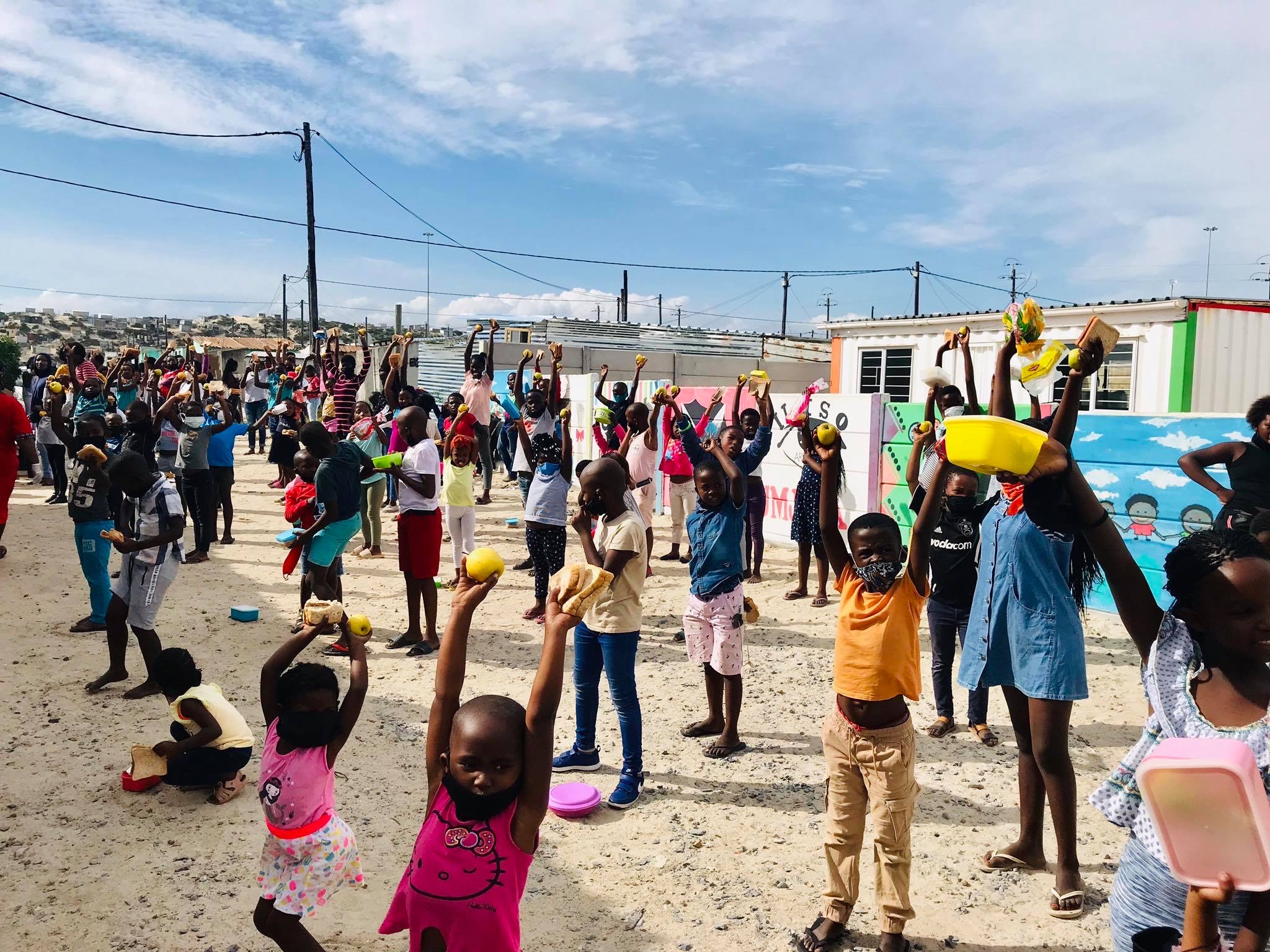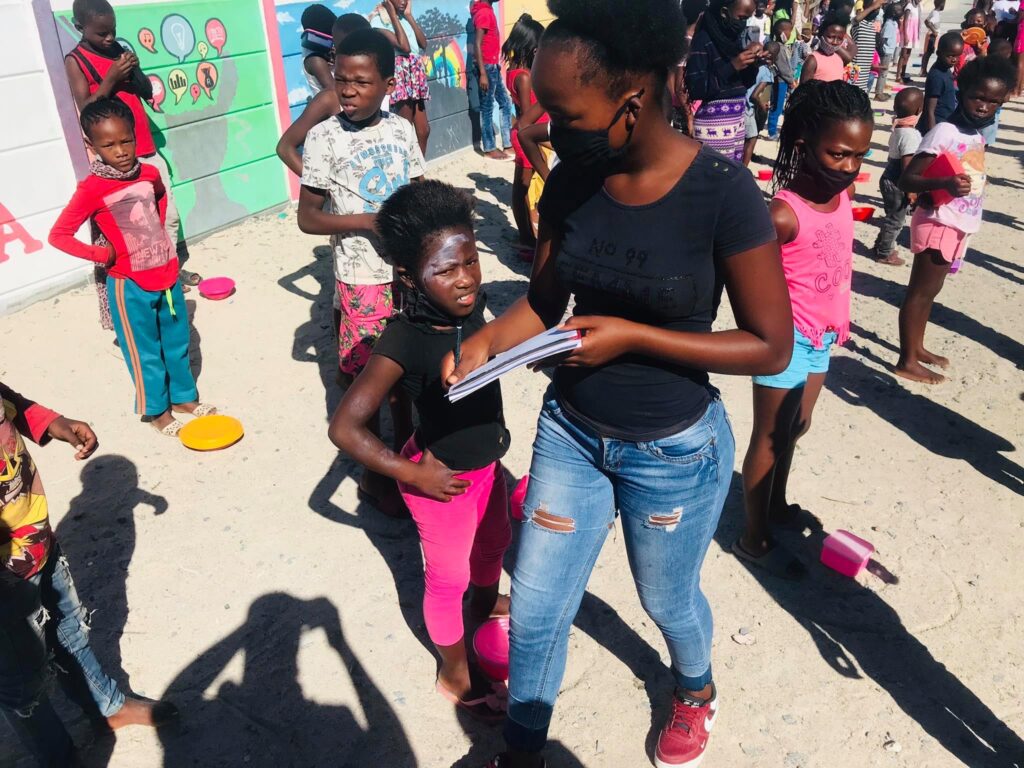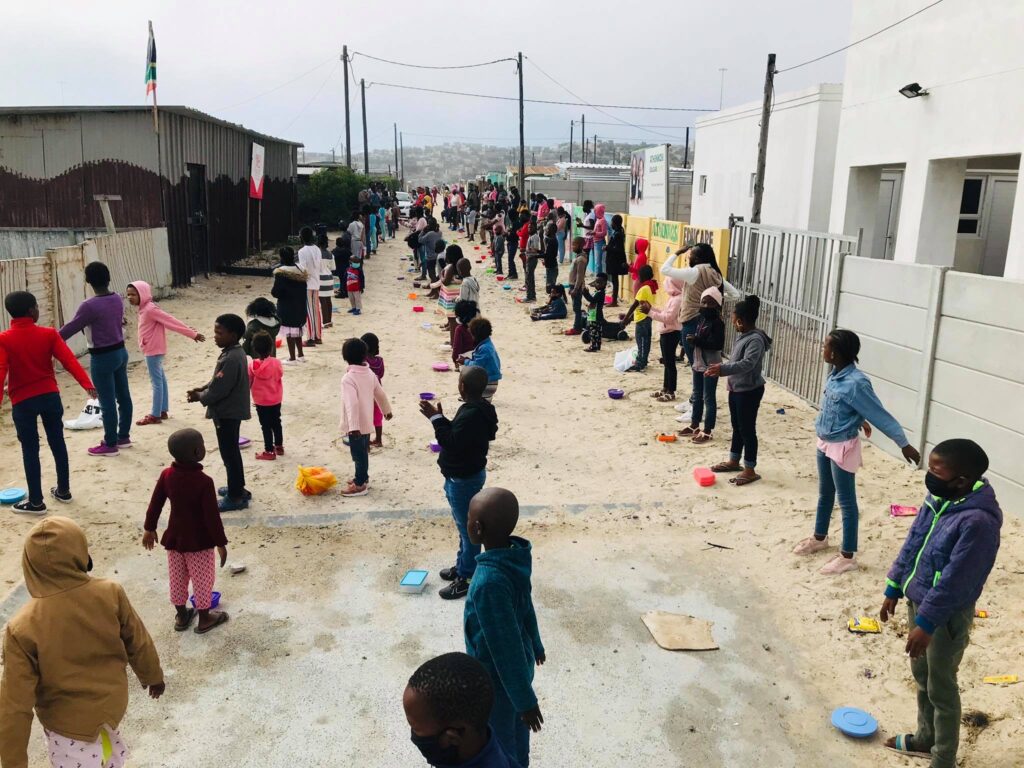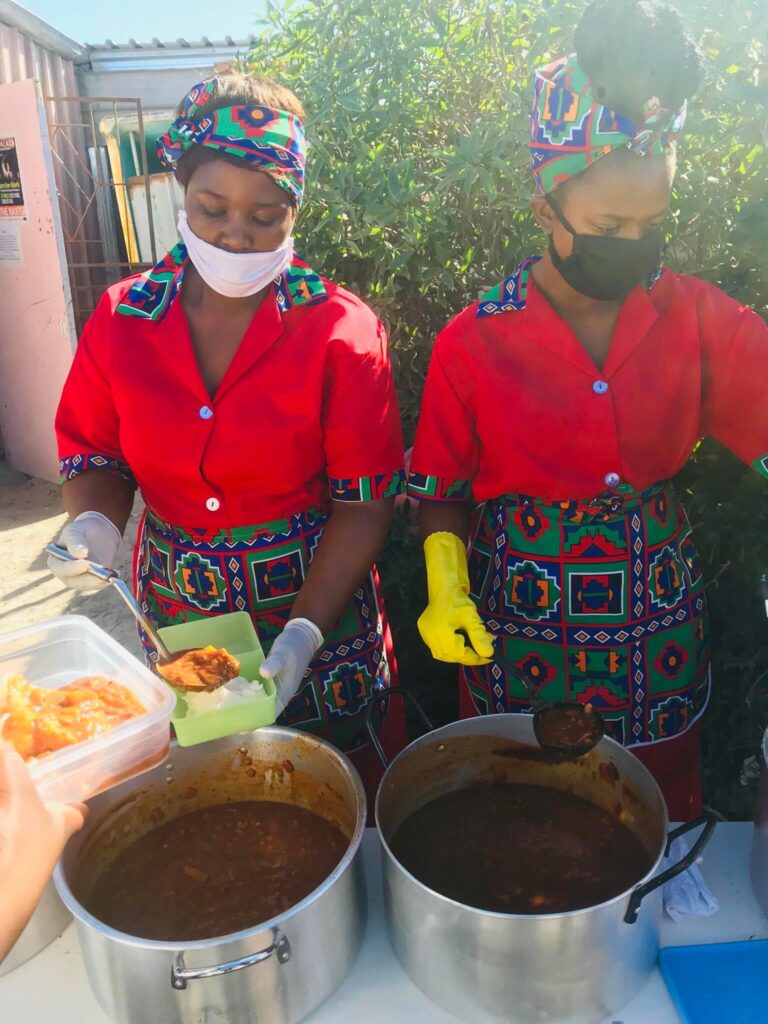
COVID-19 and the containment crisis
How is the COVID-19 challenging governance in Africa and Europe? With the pandemic and corresponding measures, people’s lives have been thrown into turmoil. In their article, Caroline Wanjiku Kihato and Loren B. Landau suggest that the COVID-19 lockdowns and limitations of movement will impact African cities and affect unproportionally the poorest communities, long after the virus is controlled.
Dr. Caroline Wanjiku Kihato is a Visiting Researcher at the African Centre for Migration in Society at Wits University, and a Visiting Fellow at University of Oxford’s Department of International Development. Her career has involved both teaching and conducting research in the academy and the non-profit sector in Southern and Eastern Africa, with focus on how marginalised populations access urban markets, and the ways planning and policy regimes support or frustrate these efforts. She explores how these processes intersect with gender, migration and informality, and has a keen interest in developing more inclusive productive spaces for the urban poor in the global south.
Loren B. Landau is a Professor of Migration and Development at the University of Oxford and Research Associate with the African Centre for Migration & Society (ACMS) at the University of the Witwatersrand, Johannesburg. His interdisciplinary scholarship explores mobility, multi-scale governance, and the transformation of socio-political communities across the global south. Along with continued work on xenophobia, inclusion, and representation, he currently oversees a multi-year initiative exploring mobility, temporality, and urban politics in Ghana, Kenya, and South Africa.
Over the past four years, restricting African mobility has been more important to European and global policy making than at any time since Hannibal crossed the Alps with his war elephants. As the world reels from the impact of the novel corona virus, these restrictions are likely to intensify in both the short and long-term. Through an unfortunate alignment of interests, European destination countries and African states are ever more likely to institute unprecedented lock-downs on local and global movements. To be sure, curbing peoples’ mobility is essential in the short-term, especially in dense urban areas where people’s circulation can be catastrophic for public health. But authorities are already mobilizing the pandemic to clamp down on people’s future movements.
Where migration is inextricable from people’s physical survival and livelihoods, doing this undermines the resilience of some of the poorest communities who rely on remittances for necessities: food, shelter, health and education. While few governments were prepared for the pandemic, the violence used to contain populations in some African cities, erodes rather than builds people’s trust in their government’s ability to address their immediate concerns. It will further undermine future efforts to build productive and inclusive communities. Crisis represents a potential political rupture, and opportunity to realign institutions and relationships. We can collectively lean towards autocracy and coercion or to strengthening collective action and the social contract. Without a substantial shift in current discourse and practice, the latter is far more likely.

Even before the COVID-19-crisis, the European Union was driving Africa’s reterritorialization[1]: strengthening border controls[2], limiting movement within and out of the continent, and pressuring states to promote development at ‘home’. Out of fear that movements to cities or neighbouring countries might catalyse journeys to Europe, the goal was to supress mobility in all forms: not just international migration, but seasonal labour migration and urbanisation. The idea, as an agreement hashed out at a 2018 EU-Africa summit in Brussels put it, is to generate “substantial socio-economic transformation”[3] so people no longer want to leave for a better life.
In Africa, policy makers have long been ambiguous about African mobility. Leaders tentatively forward plans to facilitate domestic and regional migration and mobility while simultaneously introducing restrictions for foreigners hoping to establish business or residences. In cities, urban planning often continues as if there is not a youthful, continent-wide generation whose movements to, within, and between cities reflects their only real hope of sustaining themselves and their families. Perhaps more accurately, planning continues in ways informed by Malthusian fears[4] of how those young people’s presence might undermine political and economic hierarchies. Billions of Euros in aid money intended to control and contain has only heightened a reluctance to accept mobility as natural and essential part of people’s lives.
Cities will increasingly be the locus of efforts to police and produce sedentary urban subjects, not only in the short-term but in times long after this crisis. With containment now becoming a public health virtue, the pandemic has given governments extraordinary license to both evict[5], lock-down and control the movement of urban communities. Domestically, the perennial assault on the urban poor is likely to take on new severity. South Africa, ostensibly one of the continent’s most progressive states, has already begun implementing plans to ‘thin’ informal settlement residents in the name of health[6]. Violent stay at home orders[7] in Rwanda[8], South Africa[9], Kenya[10], Ghana[11] and elsewhere have seen state security agents shoot[12] dead and publicly flog people caught in the wrong place. Indeed across Africa, COVID-19 only exposes the frailty of basic infrastructure, public welfare systems and the coercive inclinations of its militaries. Yet the enforcement of curfews and lockdowns disproportionately disadvantages poor communities, where movement is essential to accessing even the most basic services like water and toilets. Many of those living in African cities rely on daily wages. For them, COVID-19 crackdowns present an impossible troika of choices: violence, virus or starvation.
Measures to contain the pandemic also reveal the acute assault on urban residents’ economic futures. In a world where economies are spatially concentrated, in regions where families rely on migrant workers, and where individuals’ livelihood relies on mobility, curtailing movement becomes a geographic and temporal entrapment. Doing so may flatten the curve but it may undermine communities’ long-term resilience, foster social fragmentation, and further stigmatise poverty through a newly reborn ‘sanitation syndrome’.[13] Given this context, the pandemic only heightens possibilities of socio-political rupture in the continent’s cities.

The European Unions’ containment efforts include promoting inclusive and equitable economic growth in Africa through vocational education, improved reproductive health, or enhanced institutional capacity. Part of the strategy entails pumping money and technical aid into the states along Africa’s main migrant corridors to create jobs that absorb labour and prevent migration. These interventions could positively affect the region’s future, but they are far from sufficient. Sub-Saharan Africa’s young and fertile population, which today is about 40 percent larger than Europe’s, will be six times[14] the size of Europe’s by 2100. Even if fertility rates drop soon, the momentum for population growth will continue as today’s children reach adulthood. Generating economic opportunities for them will require unprecedented economic growth[15]: not just in one or two countries for a few years, but across the continent for multiple decades. And this will depend on the ability of some of the world’s most persistently stagnant and mismanaged economies to reform themselves. In an era of rising authoritarianism in Africa[16] and elsewhere, the pandemic is a blessing to autocrats. As the continent’s experience with Ebola shows[17], combatting the pandemic requires strengthening accountability and building trust between the state and communities. Authoritarianism may work to control people in the short term, but will not produce long-term sustainable results.
The broad efforts to contain Africans are more than simply the exercise of coercive power and exclusion. Such moves are not only about reshaping movement, but also about reshaping futures. Underlying containment campaigns are affronts to African’ spatial imaginaries. An effort to convince that Africans have no future elsewhere[18] and that movement would lead to peril[19]. Pressed up against the Mediterranean in late 2019, an African migrant in Tripoli told the BBC that, ‘I know if I make it to Europe, I’ll be someone tomorrow.’ Young Mozambican men in Johannesburg speak about the need to travel and work abroad if they hope to return home and marry.[20] Patterns of movement within the continent – as elsewhere in the world – often build on bequests from previous generations. Indeed, across Southern Africa – as elsewhere on the continent – generations of families have depended on migration. Historically more than half of Lesotho’s labour force worked in South Africa[21]. Before Côte d’Ivoire’s civil war, Burkina Faso’s economy relied heavily on sending workers there[22]. For decades, migration represented the possibility of a step in to the modern[23]. Where post-modern imaginations are infused with an acute awareness and orientation to ‘multiple elsewheres,’[24] the freedom to cross boundaries takes on even more significance. Movement for many is not just a means of survival or economic accumulation. It is a rite of passage: a means of claiming a future.
Rationing rights to life and movement are central to practices of contemporary state sovereignty. Surrendering control over these rights to armed forces and police who have often struggled with democratic accountability[25] substantially bolsters long-term threats to individual and collective freedom. These formations will resist a return to constitutionalism and market access. Authoritarian regulations on movements and immobility — border fences[26], urban expulsions[27], and lockdowns –will likely translate into enduring controls on movements. External support in the form of funds and scientific legitimacy only makes this more likely.

Those trapped by poverty, persecution or these new restrictions may become geographically sedentary, but their position in local and global social and material hierarchies will remain shaped by the circulation of goods, images and ideas. These include sub-Saharan Africa’s burgeoning and remarkably youthful population whose prospects for local employment were already deeply constrained[28]. What is certain is that their futures will not look the same. Many across Africa will face heightened vulnerability as grandparents who cared for children are ravaged by disease and remittances dry up. Long-term strategies will be upended, as will pendular mobility and connections between movement, accumulation and status. Families and futures shaped on movement are now far less certain.
Those relying on regular migration across or within borders are not the only ones imperilled. Already the urban and rural poor depend on relatively spontaneous forms of movements and translocality to negotiate the uncertainties associated with Informalisation[29]. Without secure jobs, housing, or services in a single location, people often shift locales and social networks in an effort to avoid becoming marooned in time and space.[30] For the young, an ability to move can represent a chance to escape patriarchal, heteronormative, or generational hierarchies and open opportunities for personal growth and profit.[31] Hundreds of thousands are formally contained in camps from which they are now even less likely to be released into spaces where they can build their own lives.[32] Mobility and translocalism has become a ready way to negotiate these uncertainties: to build connections across space that offers some chance at resilience and possibility amidst precarity.
The 2015 European migration ‘crisis’ starkly exposed these intersections of mobility and realising futures. The COVID-19 crisis adds the legitimacy of science to these disruptions. The violently enforced stay at home orders will be lifted, but the legacy of heightened mobility restrictions – within and among countries – may not. In the short term, politicians are suppressing critique and coercive institutions are creeping into underground economies for goods, services, and mobility[33]. As the United States’ experience[34] in trying to stem the flow of migrants to its Southern border is anything to go on, enhanced border controls have limited effect on the numbers of people moving. Instead, they tend to generate increasingly elaborate mechanisms to subvert such controls. Across the Mediterranean, militarized borders have already set off a kind of arms race between states and smugglers, with increasing collusion between the two. The Libyan slave markets[35] are the most notorious of example, but within Sudan, Niger and elsewhere state and state-like authorities are forming profitable smuggling partnerships. The same will likely to be true at a different scale across African cities.
The uncertainty of whom the plague will strike in the coming months is just one way in which futures are being stolen. The inability to move compromises people’s ability to plan, adapt, and ultimately progress. The result will not only be greater material precarity, but also existential uncertainty. Where people stop seeing the possibility of predictable futures or progress, forms of rational decision-making and political engagement will take on new meanings. Many hope for a progressive political turn as the pandemic wanes. This is possible, but people who feel robbed of futures are more likely to acquiesce to authoritarianism or support millenarianism than forge enduring, visionary solidarities.
[1] Landau, Loren B., ‘A Chronotope of Containment Development: Europe’s Migrant Crisis and Africa’s Reterritorialisation’ in Antipode, a Radical Journal of Geography, vol 51, issue 1 (2019) 169 – 186.
[2] Andersson, Ruben, ‘Illegality, Inc’, see http://rubenandersson.com/illegality-inc/ [accessed 08.04.2020].
[3] European Council, European Council meeting (28 June 2018) – Conclusions, CO EUR 9 CONCL 3 (2018)
[4] Kimari, W., ‘Africa needs to drop the ‘youth bulge’ discourse’ in New Internationalist (2018), https://newint.org/features/2018/01/01/youth-bulge
[5] See https://www.waronwant.org/stop-evictions-shack-dwellers-durban
[6] Wicks, J. and Patrick, A., ‘Provinces brace for ‘thinning’ of settlements in Covid-19 fight’ in Sunday Times 5 April 2020.
[7] Cara, A. ‘Virus prevention measures turn violent in parts of Africa’ in AP News 28 March 2020,
[8] Butera, S., ‘Rwanda Police Shoot 2; Say Officers Attacked on Patrol’ in Bloomberg 25 March 2020,
[9] Harding, A. ‘South Africa’s ruthlessly efficient fight against coronavirus’, BBC, 3 April 2020.
[10] Bearak, M. and Ombuor, R., ‘Kenya’s coronavirus curfew begins with wave of police crackdowns’ in The Washington Post 28 March 2020.
[11] Ghanaweb, ‘Lockdown: Ghana Police urges public to ignore viral brutality videos’, see https://www.ghanaweb.com/GhanaHomePage/NewsArchive/Lockdown-Ghana-Police-urges-public-to-ignore-viral-brutality-videos-910924 [accessed 08.04.2020]
[12] Bearak, M. and Ombuor, R. ‘Kenyan police shot dead a teenager on his balcony during a coronavirus curfew crackdown’ in The Washington Post 31 March 2020.
[13] Swanson, M. W. 1977. ‘The Sanitation Syndrome: Bubonic Plague and Urban Native Policy in the Cape Colony, 1900–1909’ Journal of African History. 18(3): 387-410.
[14] Milanovic, B. 2015. ‘Five Reasons Why Migration Into Europe Is A Problem With No Solution’, Social Europe, https://www.socialeurope.eu/five-reasons-why-migration-into-europe-is-a-problem-with-no-solution [accessed 08.04.2020}
[15] Clemens, M. and Postel, H. (2018) ‘Can Development Assistance Deter Emigration?’, summary of the policy paper Deterring Emigration with Foreign Aid: An Overview of Evidence from Low-Income Countries, Center for Global Development.
[16] Subramanian, G. ‘The Magufuli ‘bulldozer’ effect’ in The Hindu 03 October 2019.
[17] Christenseny, D., Dubez, O., Haushofer, J., Siddiqi, B., Voorsk, M. (2020). Building resilient Health Systems: Experimental evidence from Sierra Leone and the 2014 Ebola Outbreak’.
[18] Landau, L.B., Freemantle, I. (2019). ‘Africa at the gates: Europe’s lose-lose migration management plan’, AMMODI.
[19] IOM, 2019. See https://www.iom.int/news/10000-ghanaian-youth-learn-about-pitfalls-irregular-migration [accessed 08.04.2020]
[20] Madsen, M.L. (2004) ‘Living for Home: Policing Immorality among Undocumented Migrants in Johannesburg’, African Studies, 63(2):173-192.
[21] South African History Online, ‘Notes on the migrant labour system in Lesotho’. See https://www.sahistory.org.za/archive/notes-migrant-labour-system-lesotho [accessed 08.04.2020]
[22] Kress, B. (2006). ‘Burkina Faso: Testing the Tradition of Circular Migration’, Migration Information Source, migrationpolicy.org.
[23] s
[24] Karera, A. (2013). ‘Writing Africa into the World and Writing the World from Africa: Mbembe’s Politics of Dis-enclosure’, Critical Philosophy of Race, Vol. 1, No. 2 (2013), pp. 228-241.
[25] Transparency International, see https://www.transparency.org/news/feature/corruption_of_police_in_africa_must_end_now [accessed 08.04.2020]
[26] AlJazeera, 7 April 2020, see https://www.aljazeera.com/news/2020/03/coronavirus-travel-restrictions-border-shutdowns-country-200318091505922.html [accessed 08.04.2020]
[27] Wicks, J., Patrick, A. (2020), ‘Provinces brace for ‘thinning’ of settlements in Covid-19 fight’ in Sunday Times 5 April 2020.
[28] Landau, L.B., Kihato, C.W. and Postel, H. (2018). ‘Europe Is Making Its Migration Problem Worse: The Dangers of Aiding Autocrats’ in Foreign Affairs, 5 September 2018.
[29] Landau, L.B. (2019). ‘Temporality, informality, & translocality in Africa’s urban archipelagos’, MIASA Working Paper No 2019(4).
[30] Simone, A. 2017. ‘Living as Logistics: Tenuous Struggles in the Remaking of Urban Collective Life.’ In G. Bhan, S. Srinivas and V. Watson (eds.) Routledge Companion to Planning in the Global South. London; New York: Routledge.
[31] Lubkemann, S. (2007), Culture in Chaos: An Anthropology of the Social Condition in War, Chicago: University of Chicago Press
[32] Turner, S. (2016) ‘Staying Out of Place: The Being and Becoming of Burundian Refugees in the Camp and the City’ Conflict and Society, 2(1):37-51.
[33] Morais, S. (2020). ‘Corruption has crippled SA’s capacity to fight coronavirus, lives will be lost – Corruption Watch’, in News24, 31 March 2020.
[34] Bier, D.J. (2017). ‘Why the Wall Won’t Work’, commentary Cato Institute, first published in the May 2017 issue of Reason.
[35] Sherlock, R., Al-Arian, L. (2018). ‘Migrants Captured In Libya Say They End Up Sold As Slaves’, NPR, 21 March 2018.

Available at Hatje Cantz after March 15
Support Parangolé!
Parangolé continues thanks to the help of its readers
Upcoming Event
2021 SDG Conference Bergen:
The SDGs after the crisis
